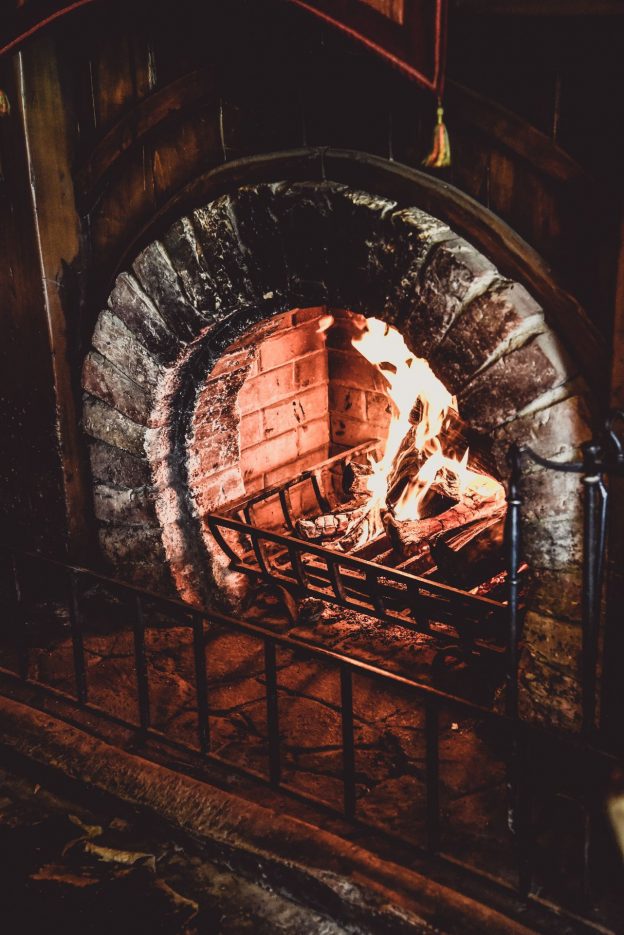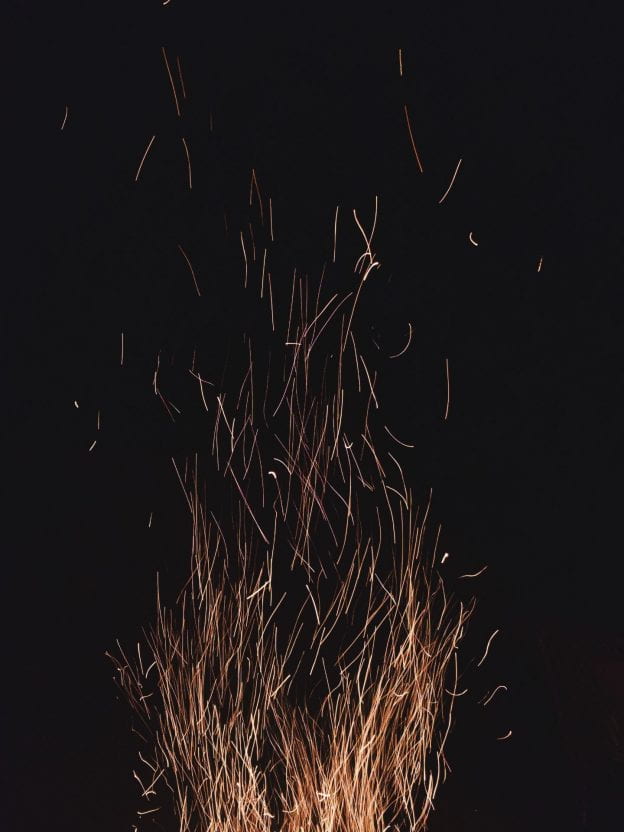Something which has caught my attention when working through many, many accounts of alleged violent offences in medieval court records is a particular method of extorting money by torture, which is specifically ‘pre-modern’: making the unfortunate victim sit on a burning tripod until he or she stumps up. See, e.g., cases from rolls of: 1332, 1337, 1348, 1355, 1381, 1406, 1407 (& same incident), 1423 (& same incident). There is also a similar case involving burning somebody with a griddle or grate, to get them to say where some jewels were, from 1433).
I suppose that it first struck me as interesting because it sounded so odd – and so specific (and, as a kid, tripods had a special, troubling, place in my heart, both as a required construction of a ‘gadget’ for the guide Camper badge, and as the terrifying villains of the John Christopher books and TV series). A moment of reflection, however, and I realised that a tripod, and a hot tripod at that, would be a common feature of medieval homes, supporting cooking vessels in the hearth. No sci-fi or uniformed organisation reminiscing required.
I find myself asking why this appears to have been a relatively plausible tactic for those trying to get a person to cough up money or do something else to benefit the offender. Why not just use a knife to threaten? Everyone seems to have had a knife, judging by the number of deaths by stabbing on the rolls, after all. Perhaps the answer is a combination of factors:
- the ‘sit on a tripod’ practice caused pain as well as exerting mental pressure, perhaps speeding the whole process up; might there also have been something humiliating for the victim about being injured on the buttocks?
- as long as it wasn’t prolonged unduly, it probably wouldn’t cause death – whereas waving a knife about could always end in a stab wound, blood, death.
There are certainly signs that it was regarded as potentially very damaging, though: an unsuccessful allegation of 1330 saw three people (two men and a woman) indicted for having, at ‘Burnecestre’ (really!) , taken and tied up one Alice Garlicmonger and put her on a burning hot tripod, naked, until she made fine with them, burning her ‘enormiter’ and ‘usque ad ossa’ (the latter is interesting from an anatomical point of view – coccyx? femurs?). The three were found not guilty anyway, so no prospect of further interrogation of medieval ideas of the construction of a backside. A roughly similar attack on a male may be seen in the case entered on the KB roll of 1423. Here, a chaplain was allegedly given the hot tripod treatment, whilst naked (at least in the relevant area) – contact was made with his nude members and fundament. ‘Members’ could just about be limbs, but ‘fundament’ is pretty clearly bottom-related.
Some of these, e.g. the 1337 case, mention a causal connection – here, the ‘enormouL gs’ or ‘outrageous’ burning was done in order ‘to get more money’. ‘The entries don’t always have the burning as connected to the taking, but I think that must be the idea. Can’t rule out gratuitous cruelty, I suppose.
I am not sure that there is anything obvious to do with these, but perhaps I will find something some day. For now – it’s a little curiosity to share asynchronously with anyone who ever stumbles along this way. Pray for me, and you are welcome.
GS
18/9/2021
Image – sort of hearth. No, not medieval. General idea …Photo by Zane Lee on Unsplash

